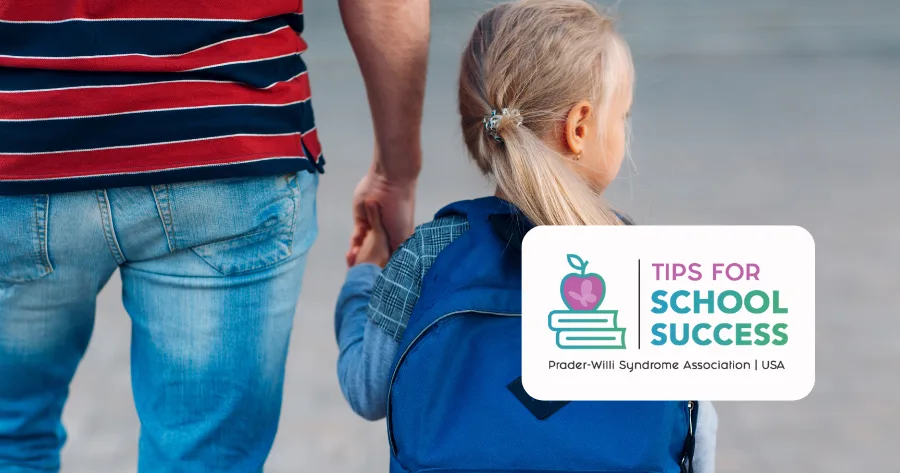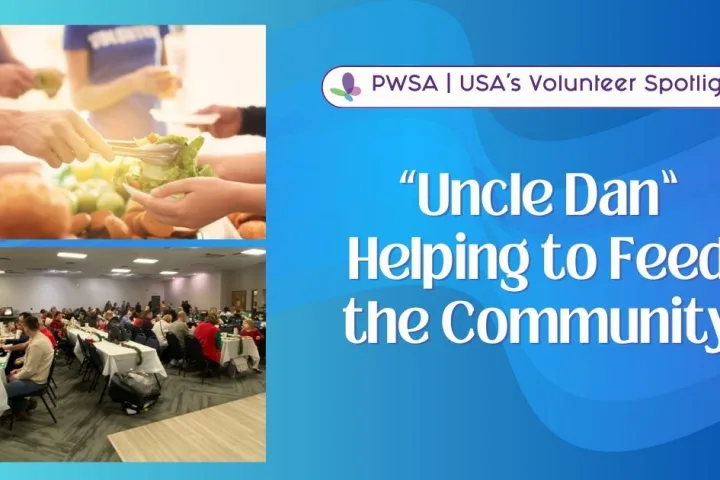Have you ever walked away from an Individualized Education Program (IEP) meeting and thought to yourself, “That’s not what they told me during the last meeting” or, “Why are we having the same discussions each meeting? This is a waste of time.” Having an organized file that encompasses all documents regarding your child’s education will help alleviate the frustration you are feeling when talking in circles by allowing you to refer back to reports, meeting minutes, assessments and previous communication with the IEP team. This file will empower you when advocating for your child and provide you with a clear understanding of your child’s strengths and unique needs.
It's ideal to create this file when your child is found eligible for special education and / or related services. However, it’s NEVER too late to start. You can use binders, file folders within a file cabinet, or an electronic document management system, there is no single right way to do this – use what will work for you.
Once you have decided what system you are going to use, it’s time to gather all the documents related to your child’s education. This includes IEPs, assessments, evaluations, report cards, progress reports, medical reports, and all correspondence (texts and emails) with school district personnel. If you do not have these documents readily available, write a formal letter to the school to request them (sample letters can be found in the School Success Toolkit HERE). Be prepared to pay a nominal copying fee.
The district is not going to have copies of text messages or emails that have been sent between you and your child’s team members. You will need to print them yourself and add them to the file. Often, we as parents find ourselves having conversations with teachers, paras, or therapists as we are dropping off or picking up from school, or perhaps agreeing to put something in place over the phone. Keep in mind that if it’s not in writing, it was not said. Follow up every conversation with an email restating your understanding of the conversation and end it with, “Please correct me if I have misunderstood or left something out.”
Now it’s time to organize the system. There are several ways to organize your documents. Pete Wright, Founder and CEO of Wrightslaw, suggests filing in chronological order. Others find organizing by category, such as IEP, assessment, etc., to be most effective for them. Many find that creating sections for each school year is an effective way to easily find documents when searching through the mountains of paperwork you inevitably will have by the end of your child’s education. Once your documents are filed, create a table of contents and update it as you receive additional documents. This will save you precious time when searching for a particular document in the future.
You may be asking yourself if spending your valued free time creating and maintaining an education file is necessary. The answer is yes. Knowledge is power. As a parent, you are an equal member of your child’s IEP team. Arriving to a meeting with all the documents organized and at your fingertips will help as you meaningfully participate in the planning process for your child.
We always encourage collaborative relationships between districts and parents but sometimes, even with the best intentions, the relationship may deteriorate. You may find yourself in a situation where you want to you file a state complaint or due process complaint. In this case, a special education advocate or attorney will need to view and use the information within the file to advocate on your child’s behalf. Hopefully, your relationship with the school district remains collaborative, and you only use your file to avoid repetitive discussions to best monitor your child’s progress and to create an IEP that is challenging yet attainable and unique to their needs. Either way, having this information organized in a usable manner is beneficial to all involved.
Share this!





 Perry A. Zirkel has written more than 1,500 publications on various aspects of school law, with an emphasis on legal issues in special education. He writes a regular column for NAESP’s Principal magazine and NASP’s Communiqué newsletter, and he did so previously for Phi Delta Kappan and Teaching Exceptional Children.
Perry A. Zirkel has written more than 1,500 publications on various aspects of school law, with an emphasis on legal issues in special education. He writes a regular column for NAESP’s Principal magazine and NASP’s Communiqué newsletter, and he did so previously for Phi Delta Kappan and Teaching Exceptional Children. Jennifer Bolander has been serving as a Special Education Specialist for PWSA (USA) since October of 2015. She is a graduate of John Carroll University and lives in Ohio with her husband Brad and daughters Kate (17), and Sophia (13) who was born with PWS.
Jennifer Bolander has been serving as a Special Education Specialist for PWSA (USA) since October of 2015. She is a graduate of John Carroll University and lives in Ohio with her husband Brad and daughters Kate (17), and Sophia (13) who was born with PWS. Dr. Amy McTighe is the PWS Program Manager and Inpatient Teacher at the Center for Prader-Willi Syndrome at the Children’s Institute of Pittsburgh. She graduated from Duquesne University receiving her Bachelor’s and Master’s degree in Education with a focus on elementary education, special education, and language arts.
Dr. Amy McTighe is the PWS Program Manager and Inpatient Teacher at the Center for Prader-Willi Syndrome at the Children’s Institute of Pittsburgh. She graduated from Duquesne University receiving her Bachelor’s and Master’s degree in Education with a focus on elementary education, special education, and language arts. Evan has worked with the Prader-Willi Syndrome Association (USA) since 2007 primarily as a Crisis Intervention and Family Support Counselor. Evans works with parents and schools to foster strong collaborative relationships and appropriate educational environments for students with PWS.
Evan has worked with the Prader-Willi Syndrome Association (USA) since 2007 primarily as a Crisis Intervention and Family Support Counselor. Evans works with parents and schools to foster strong collaborative relationships and appropriate educational environments for students with PWS. Staci Zimmerman works for Prader-Willi Syndrome Association of Colorado as an Individualized Education Program (IEP) consultant. Staci collaborates with the PWS multi-disciplinary clinic at the Children’s Hospital in Denver supporting families and school districts around the United States with their child’s Individual Educational Plan.
Staci Zimmerman works for Prader-Willi Syndrome Association of Colorado as an Individualized Education Program (IEP) consultant. Staci collaborates with the PWS multi-disciplinary clinic at the Children’s Hospital in Denver supporting families and school districts around the United States with their child’s Individual Educational Plan. Founded in 2001, SDLC is a non-profit legal services organization dedicated to protecting and advancing the legal rights of people with disabilities throughout the South. It partners with the Southern Poverty Law Center, Protection and Advocacy (P&A) programs, Legal Services Corporations (LSC) and disability organizations on major, systemic disability rights issues involving the Individuals with Disabilities Education Act (IDEA), Americans with Disabilities Act (ADA), and the federal Medicaid Act. Recently in November 2014, Jim retired.
Founded in 2001, SDLC is a non-profit legal services organization dedicated to protecting and advancing the legal rights of people with disabilities throughout the South. It partners with the Southern Poverty Law Center, Protection and Advocacy (P&A) programs, Legal Services Corporations (LSC) and disability organizations on major, systemic disability rights issues involving the Individuals with Disabilities Education Act (IDEA), Americans with Disabilities Act (ADA), and the federal Medicaid Act. Recently in November 2014, Jim retired.